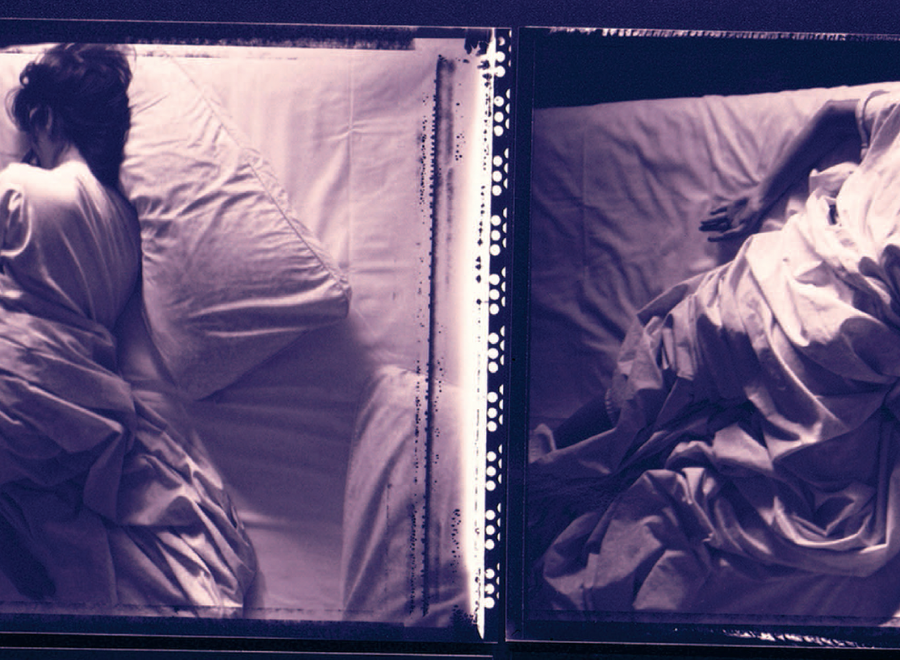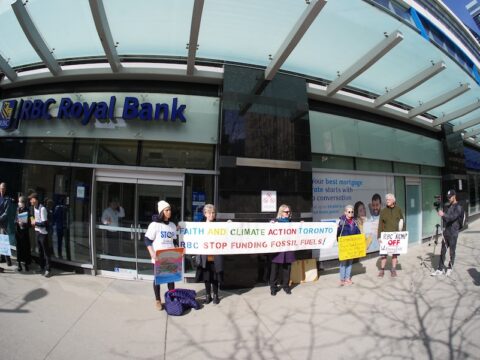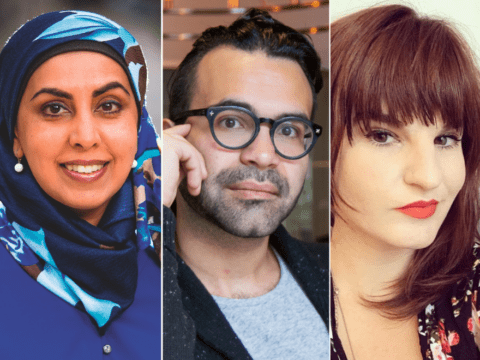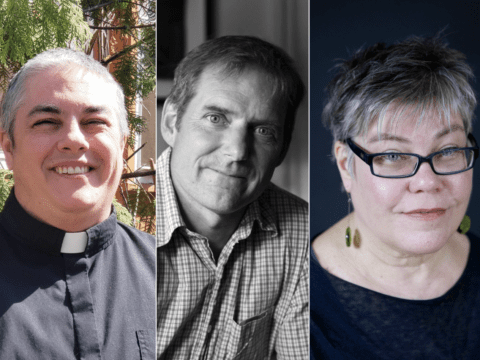One dreadful night, after being awake for more than 48 hours, I saw a pepper shaker do an Irish jig atop my kitchen table, its moves in perfect 6/8 time. Intrigued, I inspected it more closely and discovered I was a victim of my own frayed senses. Insomnia is sometimes like that.
I often go to bed with drooping eyelids only to end up gawking at the ceiling. It’s as if my mind and body are at war while the rest of the world slumbers peacefully. Shadows fall on me while streetlights buzz outside my bedroom window. The house speaks to me: pipes clank, water runs, walls shift in the dark. Ideas come in a sudden, gushing stream, like my head is being invaded by thoughts that aren’t uniquely mine. Maybe it’s a Higher Power — I don’t know. What I do feel is that something is urging me to fasten onto and nurture each thought.
You may unsubscribe from any of our newsletters at any time.
Insomniacs like me are becoming less of an exception and more the rule. According to Statistics Canada, one in every seven Canadians over the age of 15 — 3.3 million of us — report they have difficulty going to sleep or difficulty staying there. As a society, we’re getting less sleep than our ancestors did a century ago. The reasons range from medical to psychological to living with too much stress. Insomnia is no fun for those who suffer from it. But anyone who experiences it regularly will tell you that those long, lonely hours in the dark can be a time of deep creativity and spiritual awareness.
Take, for example, Rev. Gailand MacQueen of Sudbury, Ont. He often awakes at 4 a.m., usually as a result of a dream or a worry. “But being awake for an hour or two in the middle of the night really isn’t a burden of any kind; it’s sort of a little treasure,” says MacQueen, who teaches psychology of religion at Laurentian University and is the author of The Spirituality of Mazes and Labyrinths. “Sleeplessness simply allows you to get into another world that can’t be entered during the day.”
The solitude of sleeplessness — the separating of oneself from others in order to be reunited with the natural or divine — can be life-giving and rejuvenating. According to MacQueen, solitude at night can provide time to read a book uninterrupted, or to write one, to create a work of art, to reflect on life’s journey and mystery, to ponder questions you cannot find time or space to address otherwise. Those who spend time alone and awake can venture forth the next morning as better people with heightened senses of balance and focus.
And they’ll likely feel pretty grim, too. On a purely physiological level, humans still require an average of eight hours of sleep a night. Researchers say it’s genetically determined. During this time, hormones are secreted that heal muscles and strengthen the immune system. A sleeping body synthesizes proteins faster, enhancing cell restoration and growth.
“In ancient times, people used to think sleep was the sister of death. But now we know the very opposite is true,” psychiatrist and sleep specialist Dr. John Carlile tells me at the Sleep Medicine Laboratory in Kingston, Ont. “It’s a very active, chemical time — a time for the renewal of our bodies.” Sleep deprivation, he says, impairs the functioning of the cerebral cortex, though not everyone is affected to the same degree.
Generally, without ample sleep, one can experience decreased vigilance, impaired ability to remember, speak and make decisions, not to mention irritability, anxiety and paranoia, and, in severe cases, delirium. Yielding both true and false confessions, sleep deprivation is used as an interrogation technique in many parts of the world.
“Simply put, if you don’t get your sleep, you’re going to do some serious harm to yourself in the long-term,” says Carlile. “You’re going to cause problems with your coping mechanisms in your brain and shorten your life a little bit.”
One wonders what long-term damage a 17-year-old San Diego high school student named Randy Gardner did to himself in a 1964 stunt. Without resorting to stimulants of any kind and monitored by U.S. Navy medical researchers, Gardner kept himself awake for 264 hours — 11 days — to set a world record for sleeplessness. On his final day without sleep, Gardner presided over a press conference, where he spoke without slurring or stumbling his words, and generally appeared to be in excellent health. “I wanted to prove that bad things didn’t happen if you went without sleep,” said Gardner, who, after completing his record, slept 14 hours and 40 minutes, awoke naturally, stayed awake 24 hours and then slept a normal eight hours.
At Carlile’s sleep lab in Kingston, scores of people await testing and treatment for insomnia and related disorders. During my visit, he promises to sort me out, too, a prospect that gets me feeling like a kid in a candy shop. The centrepiece of this Bohemian-style office is an ornamental wall fabric woven by Carlile’s wife, depicting the states of human consciousness. Models of human heads, sporting contraptions for controlling disruptive snoring, sit on his desk. Electrodes and other sensors hang on the walls. They’re not just decorative. Technicians use them to record brainwaves, heartbeats, breathing patterns and abnormal muscle movements of patients who check into one of the clinic’s six camera-equipped sleeping sanctuaries. The sign on the front door that reads, “Please do not make noise, people are sleeping,” is no joke.
As Carlile and I chat, a woman in a hyper-agitated state knocks on his door. She’s undergoing treatment for an implacable case of insomnia that began with a single night of poor sleep. She has woken up and wants to talk — about nothing in particular, just wants to talk. She leans awkwardly on the doorframe, her movements light and tentative. The dark bags under her eyes speak volumes about her condition.
Data from the recent Canadian Community Health Survey reveal that about a fifth of insomniacs average less than five hours of sleep a night. Nearly a quarter of people who described most of their days as being either “quite a bit” or “extremely” stressful also reported insomnia.
Socio-economic, physical and mental health factors play a role, too. People in middle age (45 to 64) and the morbidly obese are especially prone to sleeping disorders.
Increasingly, bleary-eyed patients are asking their family doctors for sleep medications. In the first seven months of 2005 alone, North American pharmacists filled nearly 25 million prescriptions for sleep medications. Between 2000 and 2004, the number of adults aged 20 to 44 who took prescription sleep medications doubled, according to a survey by U.S.-based Medco Health Solutions, a drug benefit management company. New generation medications such as Ambien CR, Sonata and Lunesta aren’t as miraculous as their idyllic advertising suggests, but they’re far superior to traditional — and habit-forming — sleep inducers such as Halcion and Restoril, which have been proven to leave people feeling woozy and off-balance.
Insomnia and improperly administered sleep medication appear to have played a part in one recent high-profile tragedy. According to the New York City medical examiner, Oscar-nominated actor Heath Ledger inadvertently died of the combined effects of painkillers, anti-anxiety drugs and the sleep aids Restoril and Unisom. In a November 2007 interview, the 28-year-old Ledger admitted that his recent workload had taken a toll. “One week, I probably slept an average of two hours a night,” he told the New York Times. “Suddenly, I couldn’t stop thinking. My body was exhausted, and my mind was still going.”
THERE’S SOMETHING ABOUT THE NIGHT — the coolness, the mystery, the peacefulness, the absence of distraction. For better or worse, mystics, artists and deep thinkers alike frequently burn the midnight oil.
Throughout history, sleep deprivation has often been synonymous with heightened religious awareness. The Indian mystic and anti-colonial nationalist Sri Aurobindo claimed to have entirely overcome the need for sleep. He saw it as a sluggish, lower kind of consciousness that could be conquered through intense meditation. Ancient Muslim mystics, on the other hand, guzzled down coffee during all-night devotions, popularizing the stimulant in many parts of the world. And unlike the ancient Greeks, who extolled sleep as a sacred salve, early Christian monks were known to deny themselves slumber.
Scientific investigations into insomnia do suggest that sleeplessness can promote creativity, heightened awareness and, ironically, a warm, fuzzy happiness. During psychosomatic arousal, activity in the brain shifts regions. Parietal lobes, which play a role in one’s sense of self and spatial processing, reduce their movements. With less self-consciousness, people can feel like they are floating, sense a oneness with their surroundings or the presence of a higher power. Vivid hallucinations (remember my dancing pepper shaker?) can occur within 48 hours of no sleep.
The question arises: Are the visions and insights of the deep, sleepless night valid expressions of spirituality? As much as he treasures the quiet and solitude of the night, Gailand MacQueen has doubts. He cites Matthew Fox’s 1981 book, Whee! We, Wee All the Way Home, in which the American Episcopalian priest looks into natural and artificial ecstasy. Fox favours organic experiences such as friendships, sex and art over artificial — or what he calls “tactical” — ecstasies, including sleep deprivation.
Says MacQueen: “There should truly be a loss of ego or social self in an ecstatic state or altered state of consciousness. The whole problem with tactical experiences is the process of getting to a higher plane is very ego-centred. You’re making the choice of trying to manufacture this experience instead of allowing the experience to come to you.”
Carlile agrees. “Because we’re not in physical contact with what’s believed to be the next world, we have these mysteries. It doesn’t look like science is going to help us solve these yet, so people feel they must go on some journey in their minds. It may be wonderment and a lovely episode of goodness. But a quick, material alteration of brain chemistry is not a valid [metaphysical] experience….Heed the Buddha’s warning: ‘Don’t waste your time on fruitless practices that aren’t going to give you real spiritual advancement.’ It’s not very profitable.”
But what about involuntary sleep deprivation? Could it be that God wants me to stay awake, seeing and hearing things I would never experience in the light of day? Sleep deprivation does seem to open doors of perception, providing me with glimpses of an arcane universe. And if insomnia is an outlet for connections not made during my upright hours — a dredging-up process for ideas I didn’t realize I had in me — then maybe I shouldn’t fight it, at least not so vehemently.
The truth is, I don’t rejoice in sleep deprivation and I don’t know many people who do. It seems that any temporary gains that come my way when I burn the midnight oil are quickly lost when it becomes a regular habit. Maybe I should do what Carlile suggests: stop fighting insomnia and start modifying my sleep and waking patterns. Stop waiting for voices in the dark and start looking for that “a-ha” experience in the light of day.
Something to sleep on, anyway.
***
This story first appeared in The United Church Observer’s April 2008 issue with the title “To dream, perchance to sleep.”













